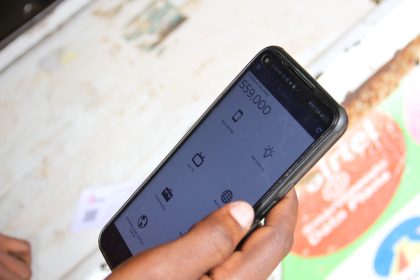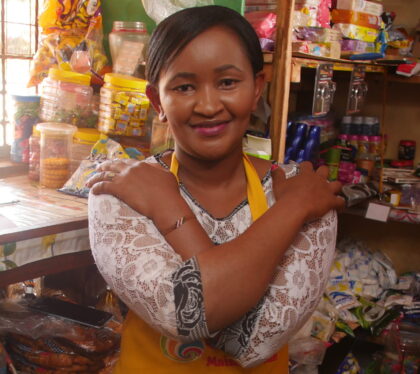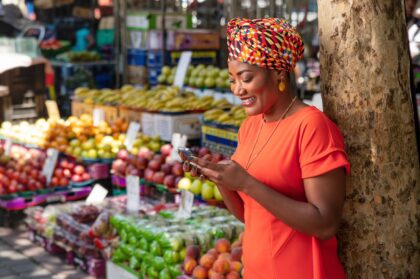
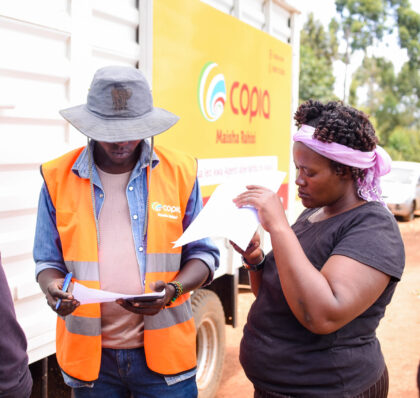
Creating resilient growth opportunities with financial inclusion
Taking out a loan to expand your business. Ordering school supplies online. Transferring money to relatives in another country. In some parts of the world, these are ordinary, unremarkable financial transactions. But in sub-Saharan African, they have the potential to transform individual lives, communities, and even entire economies.
That’s exactly the type of transformation Goodwell looks for when investing in innovative, fast-growing businesses in Africa. When talking about our portfolio companies, founder Wim van der Beek makes one thing absolutely clear: “We do not do charity. The companies we invest in need to have a solid business model. What I have seen over the past decade of investing – mainly in Africa – is that our investments are far less risky than sinking your money in the umpteenth hip start-up from Silicon Valley.”
The promising opportunities in Africa are partly due to the unique factors driving economic growth across the continent, including a young population, rising middle class and improving (digital) infrastructure. However, the dependable returns also come from Goodwell’s focus on investing in companies that make basic goods and services more affordable and accessible for low-income people. There will always be consistent demand for these offerings, and these types of businesses have also proven to be “antifragile”, meaning they flourish in the face of challenging or unpredictable circumstances. Better yet, businesses operating in these essential sectors – such as financial services – can deliver profits and positive impact in equal measure.
Bringing e-commerce closer to home
In Kanunga, a Kenyan village an hour north of Nairobi, 31-year-old Teresia Kimani owns a small shop. She previously ran a hair salon, but recently she started working as an agent for a company called Copia – a rapidly growing company that Goodwell invests in. “Via the Copia app, customers order goods that are delivered to my shop where they can be collected,” explains Ms. Kimani. This business model ensures that customers who do not have a credit card or home address can still make use of e-commerce, unlocking an estimated 800 million potential customers across Africa.
Ms. Kimani, who is one of the 60,000 Copia agents, proves that the business model works. It is making online shopping a reality for people who were previously excluded from this convenient service, bringing necessary goods closer to their doorstep while eliminating time-wasting shopping trips to the nearest city. It also gives shopkeepers a way to increase their incomes without stocking additional items.
“The most popular products are vegetable seeds, household items and school materials,” said Ms. Kimani. These essential products are always in high demand, no matter how the economic climate in the country is, explained the entrepreneur, before ending the conversation to attend to the long line of impatient customers in front of her shop.
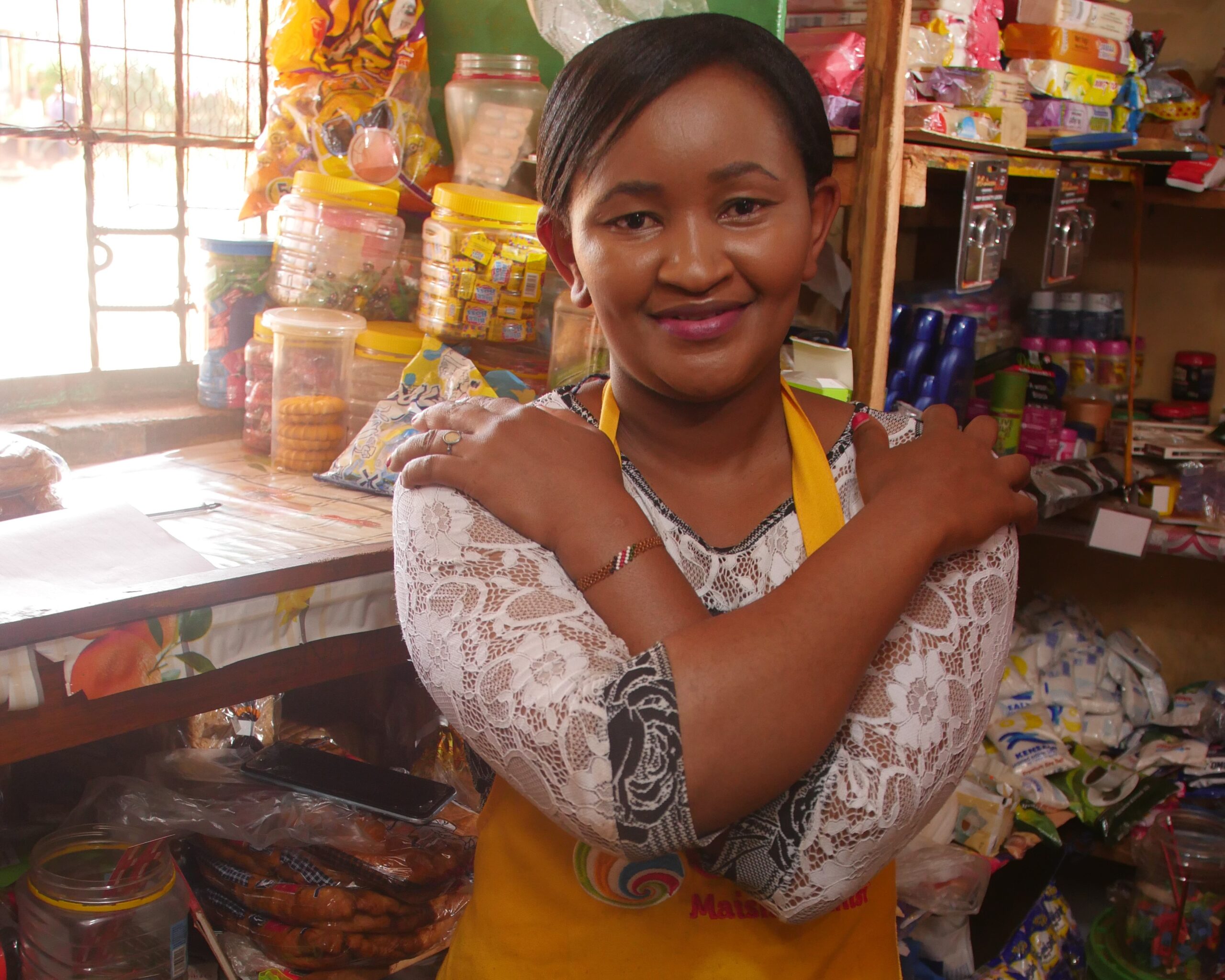
Read more about how Copia is making e-commerce more accessible in East Africa.
Extending credit to small businesses
Something else that is always in high demand is credit. Especially for small- and medium-sized enterprises (SMEs) credit can be hard to come by, forcing people to turn to loan sharks who provide short-term loans at ridiculously high interest rates. This is where Asante comes in, a fast-growing fintech company in Goodwell’s portfolio.
When Edgar Tugume (32), who runs a mobile money outlet in the outskirts of Kampala, is low on ‘float’ (credit on his mobile money account) he can easily top it up with a loan from Asante. “My main benefit is that I don’t lose customers,” Mr. Tugume, located right in between two hardware shops, explained. “Mobile money is all about commission. Therefore, if a customer wants to send 2 million shilling (530 euro) of mobile money, I am set to earn a commission. It is helpful that I can now top up my float if I am low, to at least secure the commission.”
Float – working capital loans that ensure consistent cash flow – is just one way Asante supports small businesses. They also offer financing options to help companies secure smartphones and insurance policies, as well as larger loans to cover operational costs or growth ambitions. Supporting the financial needs of SMEs is an essential driver of economic progress across all of Africa: SMEs currently provide 80% of the jobs on the continent, yet more than 50% of these businesses say they struggle to access the financing they need.

Read more about how Asante supports the goals of small businesses.
“Asante and Copia are perfectly showing what I mean by antifragile,” comments Wim. “If you are offering a product that people need, in a better way, people are more inclined to use it and stay with it long term. The demand is almost unlimited.”
Breaking down barriers to transactions
The rise of mobile money is powering a financial inclusion revolution in Africa. First rolled out in Kenya in 2007, it’s now used by millions of customers across the continent. “One thing has been lacking, however,” Wim explained. “It had always been difficult to transfer between different networks and different countries. One of our fastest-growing investees is fixing exactly that. They are called MFS Africa.”
MFS smartly interconnects platforms and eliminates the barriers to international financial transactions. “In the past few years, we have grown to a company with 700 staff members, and we have become active in 35 African countries,” said Doreen Lukwanda, Vice President Global Enterprise at MFS Africa. “Companies can use our services to make payments to their staff across countries and across networks, but there are many other possibilities.” Other fast-growing companies, like M-Kopa and Asaak, use MFS Africa to provide loans and receive repayments.
Quick and affordable international transfers aren’t only important for businesses. They also streamline payments between friends and family, including remittances sent from abroad. According to World Bank statistics, USD 49 billion in remittances flowed into sub-Saharan Africa in 2021, providing an essential economic lifeline for the continent. Excluding Nigeria (where the remittances dropped sharply), there was a 2.3% increase in remittances in this region in 2020 due to the increased financial need created by the COVID-19 pandemic.
These statistics mirror Wim’s personal experience working with MFS over the past few years. He says that “…interestingly enough, during the COVID crisis and also when Uganda was plagued by Ebola, demand for digital payments increased even further. This company has really proven to withstand economic headwinds.”
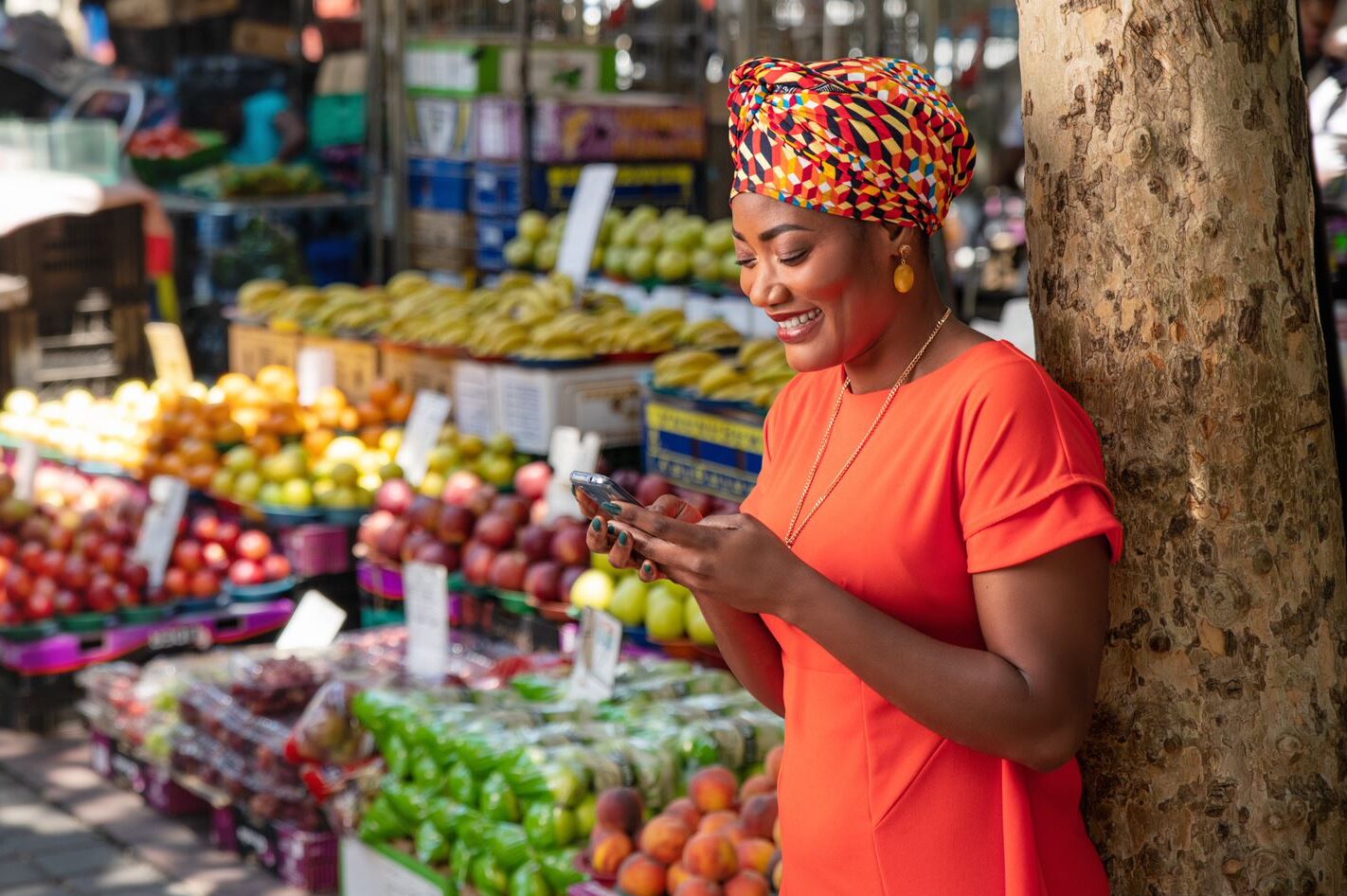
Read more about how MFS is enabling the mobile money revolution.
Reflecting on companies like Copia, Asante, and MFS, as well as the Goodwell portfolio as a whole, Wim is extremely optimistic about the continued potential for growth. “We may live at a period in time that is very fluid and has a lot of uncertainties. However, the growth drivers that we have seen in Africa in recent years haven’t changed at all: fundamental growth is still expected. And you are all invited to be part of that growth!”
To find out how Goodwell’s hands-on approach to impact investing creates powerful opportunities for inclusive growth, get in touch at contact@goodwell.nl. We’d be pleased to tell you more about what we do.
